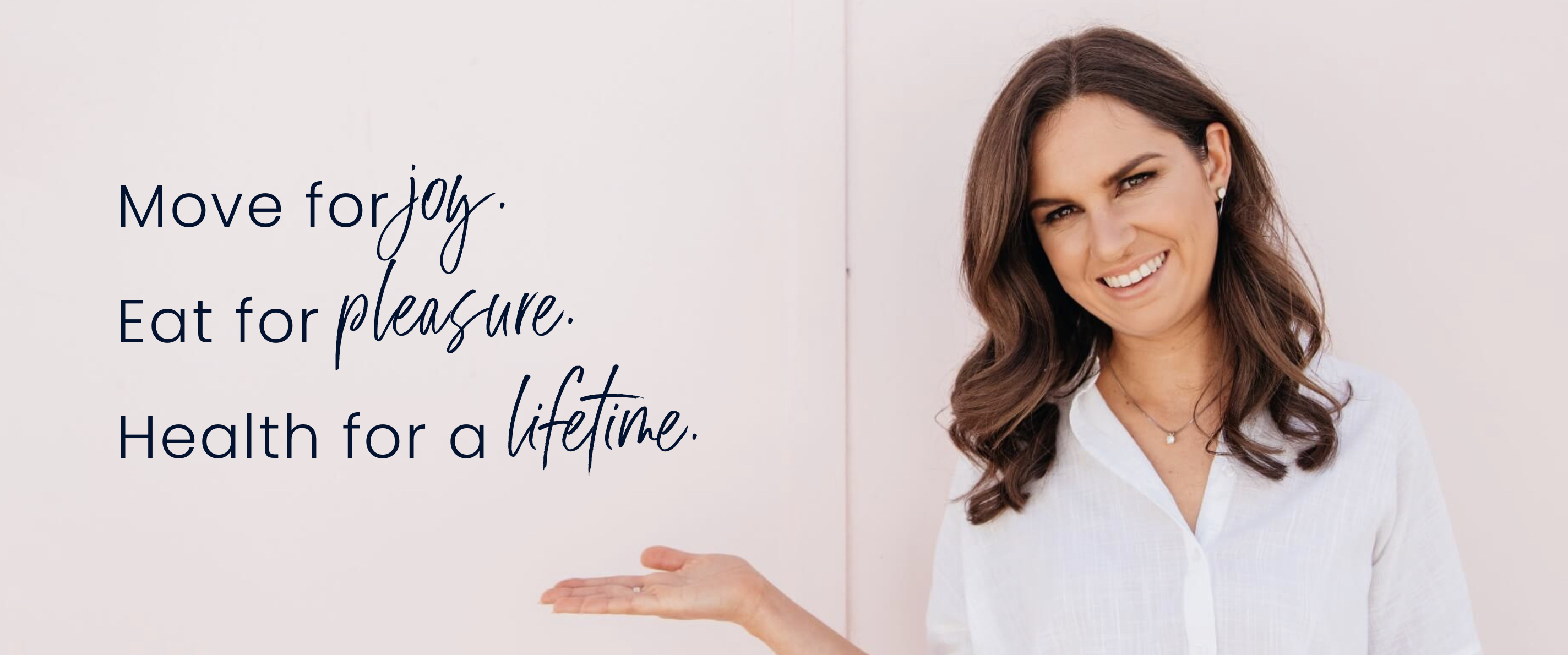Exercise is often seen as a virtue in our society, but for people with an eating disorder exercise can become quite the opposite. Fitness can become excessive and compulsive to the point where it takes over your life and becomes dangerous for your health.
So how do you know when wanting to stay healthy becomes unhealthy?
“If you can't take a break, or you can't give yourself a break, and you feel a lot of guilt and shame around resting your body, then you're probably not in the best place with it,” says Exercise physiologist and health coach Sarah Liz King.
Sarah features on the latest episode of the InsideOut Institute podcast. Available on itunes or on your favourite podcast app. More info here.
Sarah says a couple of common red flags may include:
- Injuries and illness because you're not giving your body enough time to rest and recover.
- Hormonal imbalances, for example, lower testosterone in men and a loss of periods in women.
- An inflexible workout schedule that means you miss out on important social occasions like friends’ birthday celebrations.
“I think that's when you kind of have to ask yourself; do I want to get to the end of my life and have missed out on making these great memories just because I thought that exercise was the most important thing in my life?”
Sarah understands exactly how that feels, because she’s been there herself.
What started as an effort to meet the ‘ideal’ beauty standard of her first boyfriend through diet and exercise “spiralled out of control”, according to Sarah.

“I could not live without exercising, it was really compulsive, and my behaviours became more restrictive.”
It wasn’t until her best friend told her “you can’t keep living like this” that she ended the bad relationship with her boyfriend and went “head first into recovery”.
Sarah stresses that this takes time.
“I had a really supportive family, and, over time, my inner monologue started to change.”
“You have to come out of the negative behaviours that you were in, but also you have to start finding who you are again, which is a massive self discovery process.”
Finding yourself without exercise
Sarah tells her clients that eventually, exercise will become like “brushing your teeth” - something you do as part of your life, but don’t “obsess over it”.
“Eventually, you'll start filling your life with other things that you're interested in... and once you do that, exercise naturally becomes a small part in its rightful place.”
“Your health doesn't define who you are. It is a small component of your being that allows you to have the vitality and the energy to go and do the things that you're really passionate about.”
Sarah also recommends her clients ‘detox’ their social media accounts.
“Imagine you have your favourite magazine, you can either fill that magazine with really unhelpful things that are going to perpetuate you feeling crap about yourself, or you can fill it with really great things that are not just fitness related.”
Sarah says it can be really beneficial, and necessary, to take time off exercise during recovery.
“I took a year off from exercising when I was in my recovery, because I needed to know that I could live without it, and be okay.”
Making a safe return to exercise
If clients want to start moving their body again, she recommends doing it with the help of a dietitian, a psychologist and someone to keep you accountable in those first few return sessions.
“Try not to make it about things like numbers or steps, and remove all of those previous ties with the eating disorder.”
Sarah says the ultimate goal is to move your body in a way that feels good.
“I think the best way to test whether you're hitting the mark with that, is when you leave the gym or you finish whatever activity you're doing, you should feel better than when you started - mentally and physically. It’s about filling your cup, not draining it further.”
Sarah says you shouldn’t be afraid to call out unhelpful messages either.
“If you're going to a spin class or a workout class with weights, and it's all language about like toning certain body parts or burning a certain amount of energy, it’ just reinforcing the idea that all bodies need to be exercised for weight and shape - and that's not what exercise is about at the end of the day!”
“My message for anyone out there that might be struggling with disordered eating or eating disorders or obsessive exercise is just know that whatever stage that you're at - you deserve help.”
You can hear more of Sarah’s recovery tips in her episode of the InsideOut Institute Podcast. More info here.
If you or a loved one needs support, please head to our website or call the Butterfly National Helpline 1800 ED HOPE (1800 33 4673)
Further reading
Fact sheets
For Fitness Professionals
Find Sarah King
